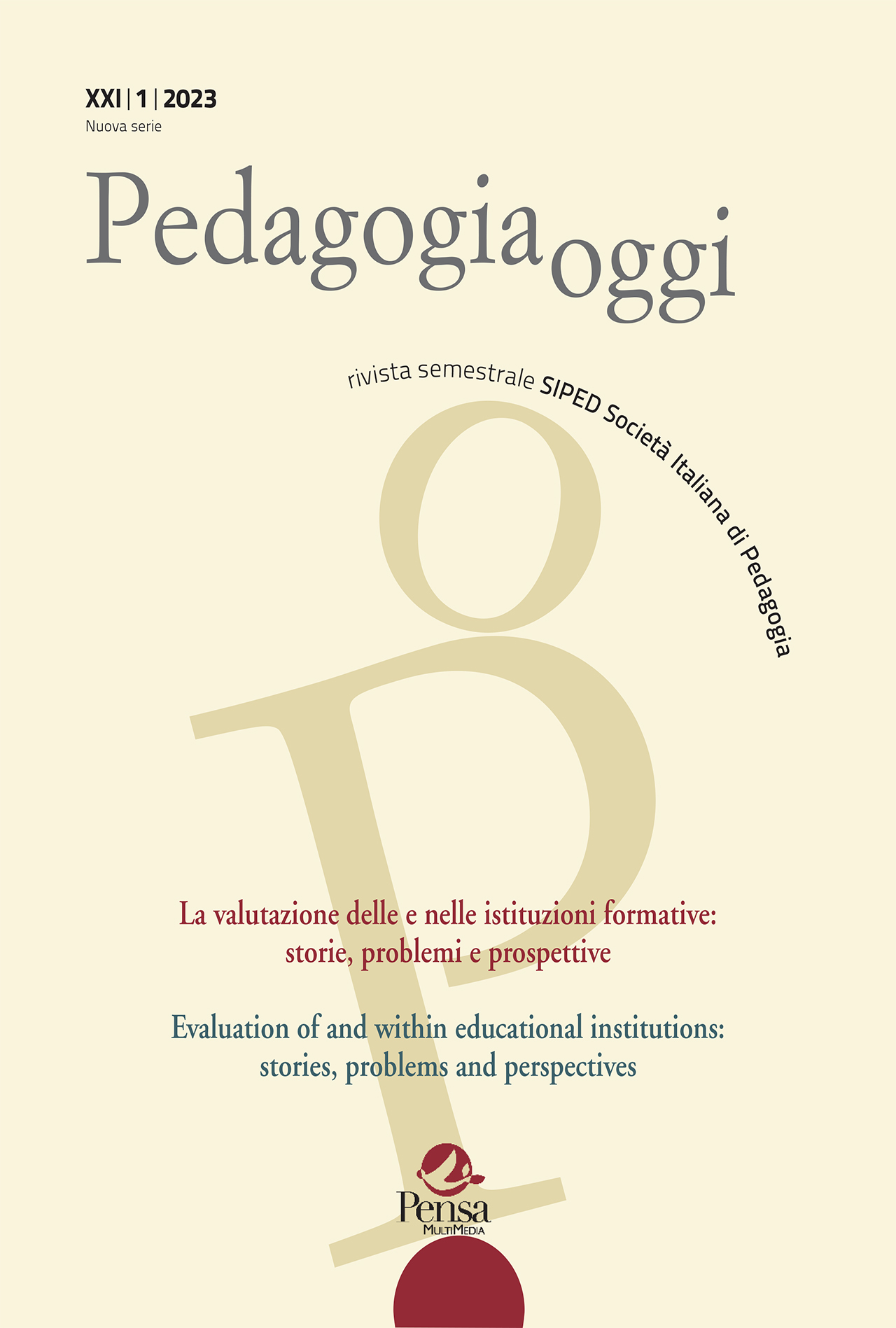Testing e politica negli Stati Uniti: una prospettiva storica da Conant al No Child Left Behind
DOI:
https://doi.org/10.7346/PO-012023-18Parole chiave:
Test standardizzati, Stati Uniti d'America, SAT e ACT, No Child Left Behind Act, Politiche scolasticheAbstract
Il saggio indaga l’evoluzione del ruolo degli standardized tests nelle politiche scolastiche statunitensi, dall’affermazione del SAT come strumento di selezione per merito del corpo studentesco universitario per iniziativa del presidente di Harvard James Bryant Conant negli anni Trenta fino alla loro consacrazione come strumenti normativi con la presidenza di George W. Bush. Esso si concentra su tre aspetti:
- Il ruolo istituzionale del testing, da strumento informale di controllo di un sistema scolastico decentralizzato a meccanismo vincolante di omologazione di pratiche e performance;
- Il suo ruolo sociale, da opportunità per gli studenti di emergere indipendentemente dalle condizioni di provenienza a sanzione delle profonde sperequazioni nell’accesso all’istruzione di qualità;
- Il suo ruolo nelle dinamiche etniche, per gli effetti sulla desegregazione e sull’emergere anche sulla base dei risultati scolastici dell’identità degli Asian Americans.
##submission.downloads##
Pubblicato
2023-07-03
Fascicolo
Sezione
Articoli




